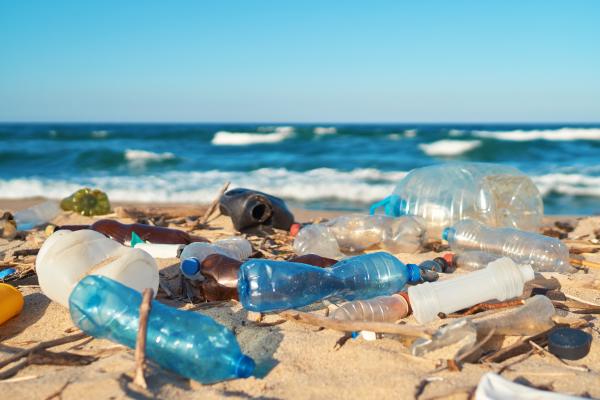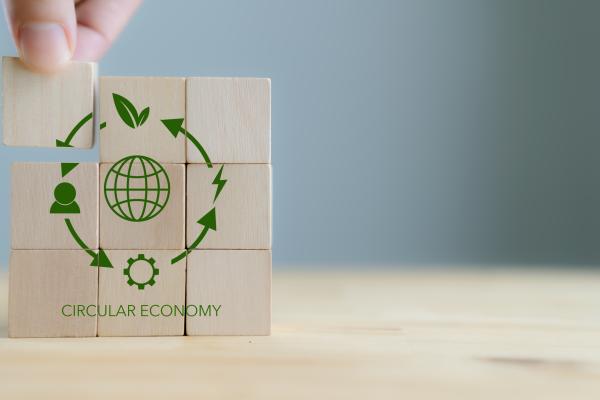Overview
Most plastics are made from fossil fuels and if not properly managed at their end of life, can accumulate in the environment. This contributes to increased greenhouse gas emissions and pollution.
Alternative plastics, such as biobased, biodegradable and compostable plastics may be a more sustainable alternative to fossil-based, non-biodegradable plastics. However, they also present their own sustainability challenges and trade-offs that must be carefully assessed and considered.
The European Commission adopted a policy framework on the sourcing, labelling and use of biobased plastics, and the use of biodegradable and compostable plastics. This was announced in the European Green Deal, circular economy action plan, and plastics strategy.
Objectives
This EU policy framework for biobased, biodegradable and compostable plastics aims to contribute to a sustainable plastics economy by
- improving the understanding around these materials and clarify where these plastics can bring genuine environmental benefits, under which conditions and applications
- guiding citizens, public authorities and businesses in their policy, purchasing or investing decisions
- preventing differences at national level and fragmentation of the market by promoting a shared understanding across the EU on the production and use of these plastics
What are biobased, biodegradable and compostable plastics?
There is widespread confusion among consumers about these different types of plastics. The umbrella term “bioplastics” is often used to describe very different materials, and the terms “biobased”, “biodegradable” and “compostable” may be misleading.
Biobased plastics are fully or partially made from biological resources, rather than fossil raw materials. They are not necessarily biodegradable or compostable. It is important to examine the full life cycle of biobased plastics, to ensure that they are beneficial to the environment beyond the reduction in use of fossil resources. This includes changes in land use.
Biodegradable plastics biodegrade in certain conditions at their end of life. Compostable plastics - a subset of biodegradable ones – typically decompose in industrial composting facilities, and first need to be collected. Biodegradable and compostable plastics may be made from biological resources or fossil raw materials. These plastics should be used when it is not possible to reduce, reuse or recycle, in line with the circular economy and waste hierarchy principles.
Law
The Communication for an EU policy framework on biobased, biodegradable and compostable plastics is not legally binding. It brings clarifications on biobased, biodegradable and compostable plastics and sets out the conditions to ensure that the overall environmental impact of their production and consumption is positive.
There is currently no EU law in place applying to biobased, biodegradable and compostable plastics in a comprehensive manner.
There are two specific laws with partial objectives:
Implementation
Standards
CEN has published several standards on biobased products, but there is no clarity around the part of a plastic product that is entirely or partly derived from biomass. Currently there are no EU sustainability criteria that apply to biobased plastics.
There is a harmonized EN standard for industrially compostable packaging, and for one biodegradable in soil mulch firms, used in agriculture. There is no general standard for marine biodegradation.
Timeline
Key dates related to the policy framework on biobased, biodegradable and compostable plastics
- 30 November 2022Commission adopts Communication on a policy framework for biobased, biodegradable and compostable plastics
- 18 January - 15 March 2022Web-based public consultation on a "Policy framework on biobased, biodegradable and compostable plastics"
- September 2021Commission publishes Roadmap for the policy framework on biobased, biodegradable and compostable plastics
View the Roadmap on the Have Your Say page.
- 11 March 2020Publication of the new circular economy action plan
Including a policy framework for bio-based plastics and biodegradable or compostable plastics
- 11 December 2019Publication of the European Green Deal
Announcing that a policy framework for bio-based plastics and biodegradable or compostable plastics would be introduced under the circular economy action plan
Studies
- Report on Biobased plastic sustainable sourcing and content
- Study on the Relevance of Conventional and Biodegradable Plastics in Agriculture, including executive summary (2021)
- Study on the relevance of biodegradable and compostable consumer plastic products and packaging in a circular economy (2020)
Related links
Related topics: Circular economy Plastics Waste and recycling
Related strategies: Circular economy action plan Plastics strategy
Related Commission priorities: European Green Deal



